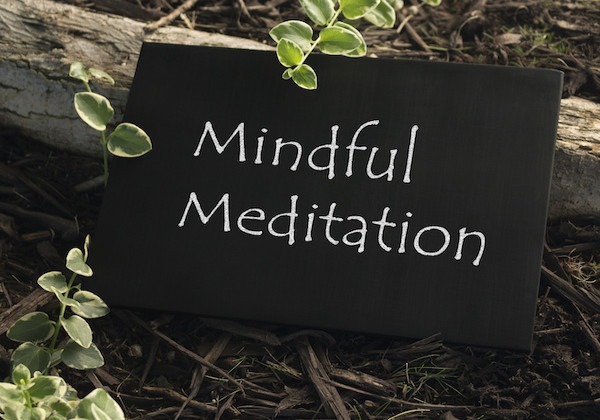Hypnosis and Meditation Amazing Health Benefits!

Before diving in, please note: This post is for informational purposes only. If you’d like to know more about how we approach topics, feel free to check out our friendly Disclaimer Page.
Hey there, amazing readers! 🖐️ Just a quick note: yes, we know there are a lot of ads here. Trust us, we get it—it’s not the prettiest look, but they help us keep this blog alive and kicking. Those pesky little ads cover the costs of all the behind-the-scenes magic, from hosting and tech stuff to creating content we hope you’ll love.
We’re committed to delivering quality posts, and your support (even just sticking around despite the ads) means everything to us. So, bear with us, and thanks for helping us keep the good vibes rolling. Now, on to the fun stuff! 😉
TRANSLATE BUTTON AT THE END OF THE ARTICLE
Hypnosis and Meditation May Increase the Benefits of Relaxation
Isn’t meditation just an option for you?
A new therapy that combines hypnosis and mindfulness has shown promising results and maybe a faster and easier way to relax.
“Mindful hypnotherapy” is a relaxing approach that researchers at Baylor University in Waco, Texas, investigated as an intervention for those who are under a lot of stress.
Hypnotherapy is a type of hypnosis that uses hypnosis to calm a person’s conscious mind so that his or her subconscious mind can give suggestions for reducing symptoms during a mindful hypnotherapy session.
“Mindful Hypnotherapy to Reduce Stress and Increase Mindfulness,” a randomized, controlled pilot study, hypothesized that adding hypnotic suggestions during meditation can deliver more impactful results in less time than a typical mindfulness routine, which often requires months of practice and training to achieve deeper states of relaxation.
Researchers at Baylor University’s Mind-Body Medicine Research Laboratory feel that this innovative way of treating anxiety and the symptoms linked to excessive stress might be a beneficial treatment alternative for those suffering from mental health issues.
Using a combination of mindfulness and hypnotherapy in a single session “is a unique intervention that may be equivalent to or better than current therapies with the benefit of being more time-effective, less scary, and simpler to utilize,” he said in a press statement.
It Should Come as No Surprise that Americans are Concerned
Anger, tension, and concern are at their highest levels in the United States in a decade, according to a 2019 Gallup survey.
A record number of people throughout the country are feeling anxious and apprehensive about the future as 2020 approaches.
Long-term cognitive behavioral therapy, typically in conjunction with mood-regulating pharmacological prescriptions, is a traditional treatment intervention for symptoms of elevated stress.
If you’re interested in stress-reduction activities like mindfulness meditation, holistic approaches may inspire you to try them.
But since they take more than 24 treatment hours, they’re often out of reach for many people.
Another integrative stress treatment is clinical hypnosis, which is “a state of consciousness including concentrated concentration and diminished peripheral awareness [with] a heightened potential for reaction to suggestion”.
When both hypnotic induction and mindfulness meditation are done together, they are said to be “a natural marriage with high prospects.”
The Baylor research team conducted a pilot study on highly stressed students on the Baylor college campus to examine these possibilities for stress alleviation.
A Path to a Deeper Understanding of Oneself Through Mindfulness
There have been no previous studies on the combination of mindfulness treatment with hypnotherapy, despite the promising results of current research.
The Baylor research team created a study to assess the viability of mindful hypnotherapy (MH) as a new treatment option and to examine the effects of MH on stress, psychological distress, and mindfulness compared to controls.
More than 80% of participants in this research were female, Caucasian, and aged 18 to 21 years of age.
They were all severely stressed and had no history of borderline personality disorder, psychosis, or schizophrenia.
The research was successfully completed by 42 volunteers.
The participants were split into two groups, with 22 in the MH intervention group and 20 in the control group, which received no therapy intervention.
Anxiety, sadness, hopelessness, and rage were all included in the stress evaluations used to establish the baseline.
Both groups were reassessed when the eight-week trial period was over.
Hypnotic induction with recommendations for increasing awareness was done during eight weekly one-hour individual therapy sessions at Baylor University’s Mind-Body Medicine Lab.
Each week, participants received self-hypnosis audio recordings to practice at home between sessions.
They were told to write down how often they used the 20-minute recordings each day in a treatment notebook.
It was throughout the course of the eight-week research that the subject matter addressed in MH sessions moved from present-moment mindfulness to nonjudgmental mindfulness of the five senses and finally nonjudgmental mindfulness of thoughts and emotions.
Other topics included self-compassion, self-awareness, integrating mindful awareness, and how to move to long-term mindfulness practice.
Using Mindful Hypnotherapy Can Help Reduce Stress Significantly
After the study was over, participants said that mindful hypnosis was a “very satisfying intervention” for dealing with times of high stress.
MH’s total satisfaction rating was 8.9 out of 10 on a 10-point scale.
More than eight out of ten participants adhered to the at-home practice instructions, with 84% practicing daily.
There was also a low rate of adverse events (4.5 percent).
Some MH group members liked the frequency and number of sessions; others appreciated how easy it was to use home hypnosis CDs, yet others appreciated how well the sessions were organized.
Stress, psychological discomfort, and the positive effects of mindfulness were all shown to have large effect sizes in this study.
Stress assessments were taken at the beginning of the trial and again at the end and showed no significant differences between the control group of individuals who did not get any treatment at all.
For now, Elkins is interested in expanding the number of individuals who have participated in MH trials and investigating the possibility of using MH as a treatment for other psychologically affective conditions, including depression, anxiety disorder, and chronic pain.
Retraining Your Brain for Health Benefits with Mindfulness
In spite of having a very short history, hypnosis seems to be a promising low-risk/high-reward treatment option.
Smoking cessation, chronic pain reduction, and treatment-resistant depression have all benefited from hypnotherapy.
It has also been shown that mindfulness-based therapies may be good for breaking the habit of smoking in college students and may also be beneficial for managing the symptoms of chronic pain and fatigue.
It’s scientifically shown that adopting a mindfulness practice may have a positive impact on one’s mental health.
Recent research in neuroimaging shows that meditation increases gray matter concentrations in executive function brain regions and alters the neural network that controls self-awareness, emotional processing, and awareness of the present moment.
Anyone who wants to feel more relaxed and have a clearer mind can start a mindfulness practice.
They don’t need any special training or equipment, and there are no known health risks.

The Enlightenment Journey is a remarkable collection of writings authored by a distinguished group of experts in the fields of spirituality, new age, and esoteric knowledge.
This anthology features a diverse assembly of well-experienced authors who bring their profound insights and credible perspectives to the forefront.
Each contributor possesses a wealth of knowledge and wisdom, making them authorities in their respective domains.
Together, they offer readers a transformative journey into the realms of spiritual growth, self-discovery, and esoteric enlightenment.
The Enlightenment Journey is a testament to the collective expertise of these luminaries, providing readers with a rich tapestry of ideas and information to illuminate their spiritual path.
Our Diverse Expertise 🌟
While our primary focus is on spirituality and esotericism, we are equally passionate about exploring a wide range of other topics and niches 🌍📚. Our experienced team is dedicated to delivering high-quality, informative content across various subjects ✨.
To ensure we provide the most accurate and valuable insights, we collaborate with trusted experts in their respective domains 🧑🏫👩🏫. This allows us to offer well-rounded perspectives and knowledge to our readers.
Our blog originally focused on spirituality and metaphysics, but we’ve since expanded to cover a wide range of niches. Don’t worry—we continue to publish a lot of articles on spirituality! Frequently visit our blog to explore our diverse content and stay tuned for more insightful reads.






